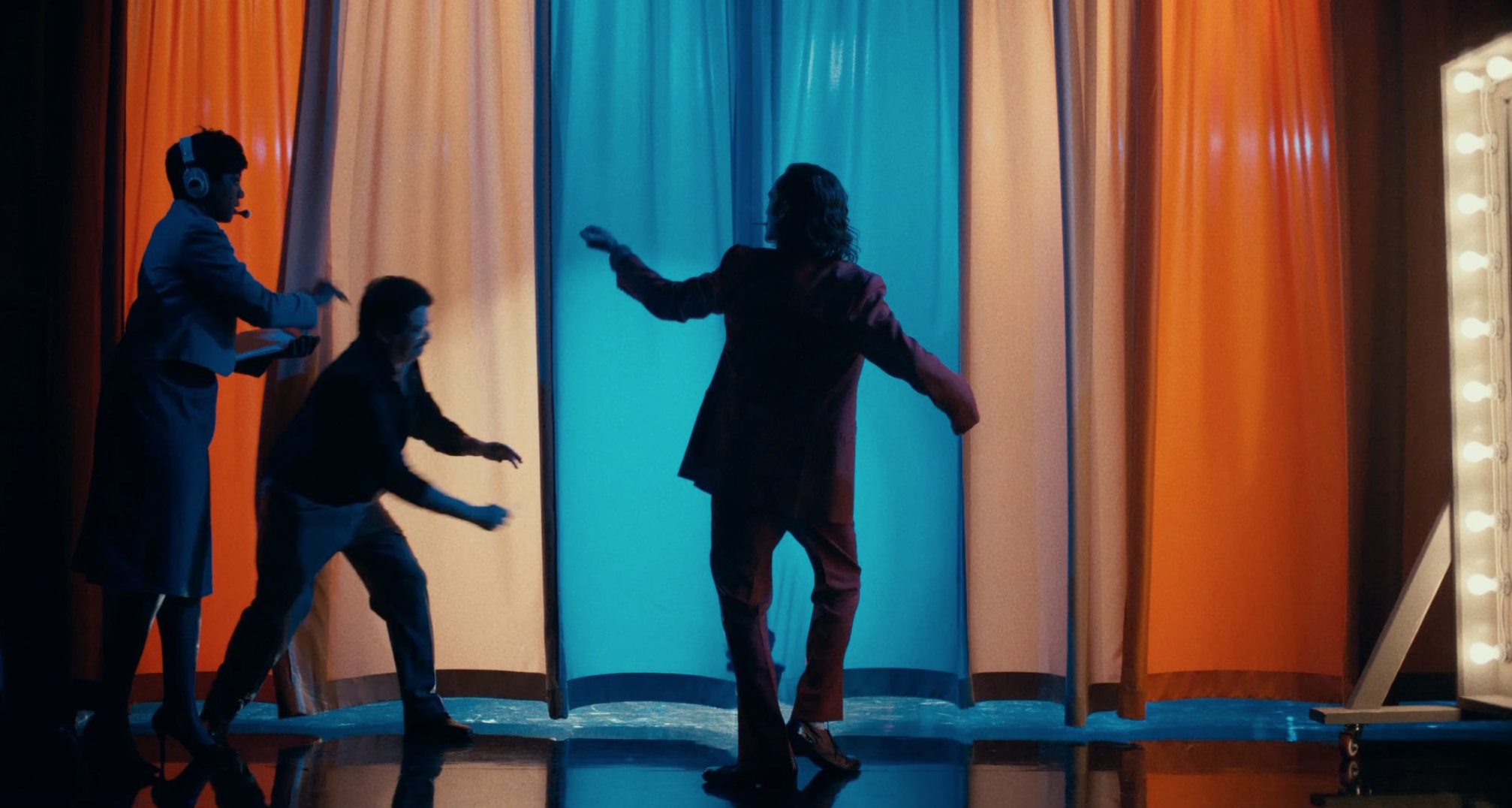Variety critics Owen Gleiberman and Peter Debruge haven’t engaged in a genteel, hail-fellow-well-met, Marquis-of-Queensbury dispute about Joker — they’ve gotten into an actual argument. It’s like a mid ’60s slapdown between Pauline Kael and Bosley Crowther about Bonnie and Clyde. Gleiberman loves Joker‘s mad disturbing provocations while Debruge finds them rash and exploitive and even dangerous (i.e., “Phillips has given incel types a poster boy for the kind of toxic ‘it’s everybody’s fault but mine’ mentality“).
Favorite OG excerpt: “If you say you have trouble with films that create ‘sympathetic portraits of sociopathic characters,’ I guess that’s an argument. But it’s a terribly conservative one. The same argument, and outrage, was once used as a weapon against movies like The Public Enemy and Scarface, and you could easily wield it against a work of art like Bonnie and Clyde — as, indeed, the New York Times critic Bosley Crowther famously did at the time.”

“But when you call Joaquin Phoenix‘s Arthur Fleck a ‘poster boy’ for angry self-pitying incel types, I do think you’re onto something — not about whether he’s going to become a hero to the basement-dweller brigade, but about the true, underlying reason why there’s been so much hostility to Joker on the part of film critics who routinely greet utterly processed comic-book films with a wan shrug of approval.
“The movie is being treated by those critics as if it were a two-hour advertisement for the toxic white male. It almost doesn’t matter whether the film is glorifying or condemning Arthur’s violence. Everyone knows that Joker is going to be a huge hit — and, more than that, a phenomenon — and the fact that it places a toxic white male at the center of the conversation is somehow being slammed as a violation of the New Woke Rules.
“The critics are saying: We’re done with characters like this! But they’re trying to wish away something that can’t be wished away. In doing so, they’re treating the rare piece of popular art with a genuine emotional danger to it, as if it were the enemy.
Debruge response: “It would be a big mistake to banish toxic white men from the movies. We live in a patriarchal, white supremacist culture, and as such, movies dissecting the dudes in power are a necessary tool in unpacking and challenging that dynamic — if anything, that sounds like an argument for the film’s existence. But it’s one that greeted Taxi Driver and The King of Comedy back in their day, and, to an even greater degree, Stanley Kubrick’s “A Clockwork Orange” — all three of which Phillips overtly references in Joker.
“I have a slightly different hunch about the hate, informed by my own reaction: Because this is a superhero spinoff, we expect a certain kind of movie going in, but Phillips switches genres on us. Joker isn’t a comic-book adaptation in any conventional sense, but a kind of horror movie, in the vein of Psycho or Henry: Portrait of a Serial Killer, where the main character is the villain. Joker sucks all the fun out of a flamboyant character. [Plus] it feels like Joker is just throwing gasoline on the fire.
OG: “I think it’s exposing the fire, and that’s cathartic.”









